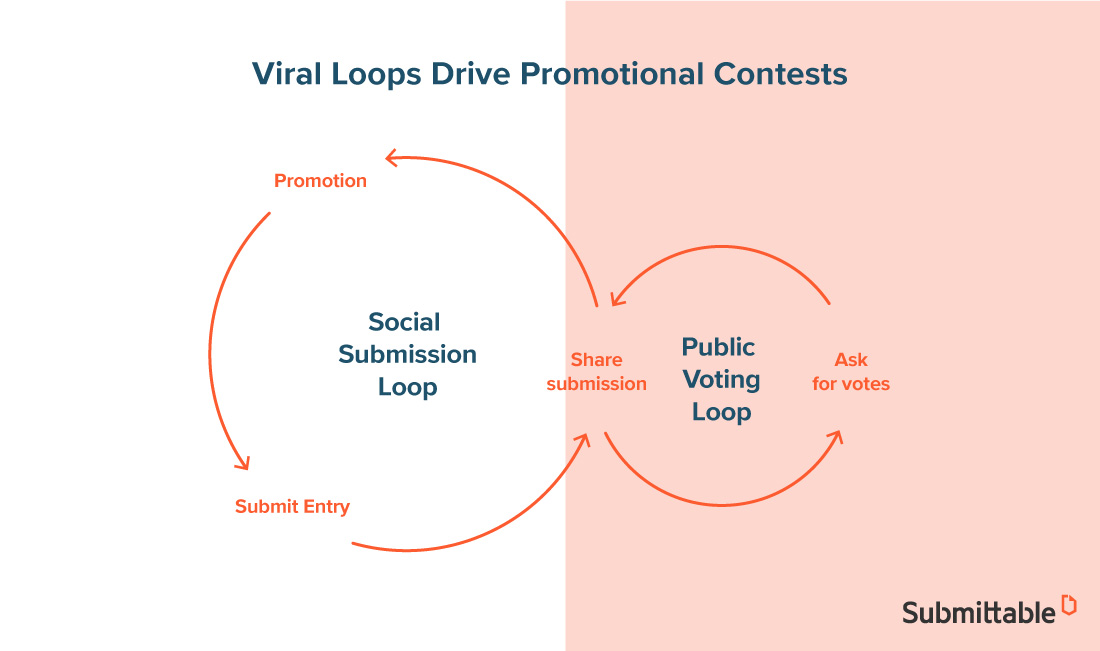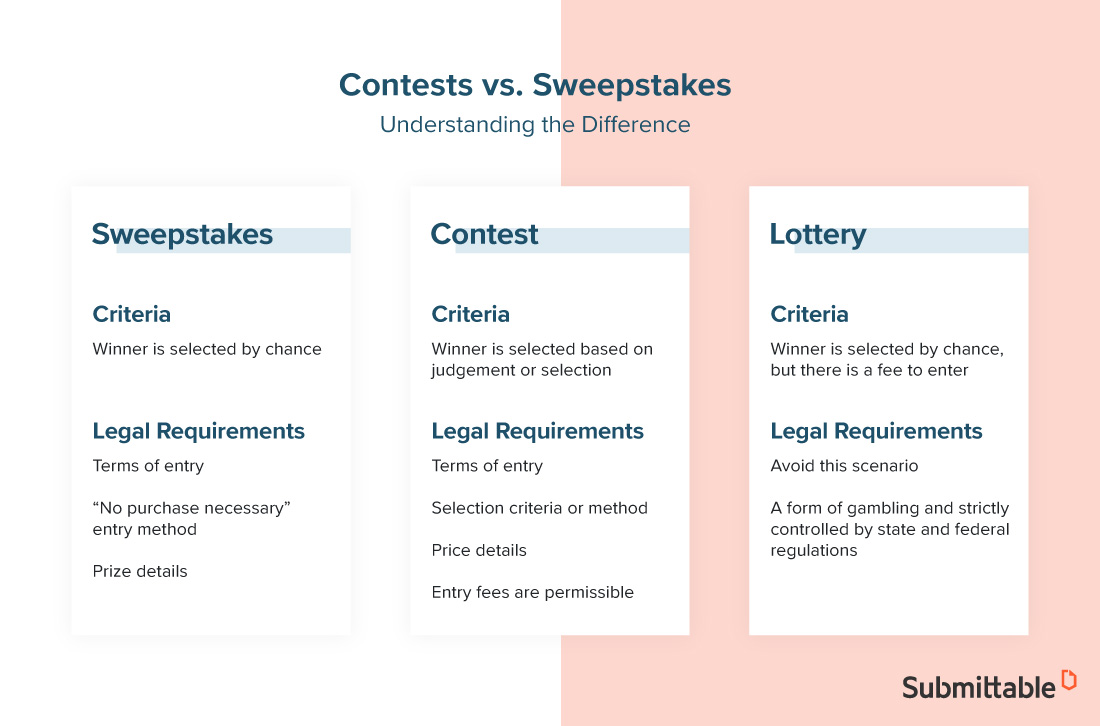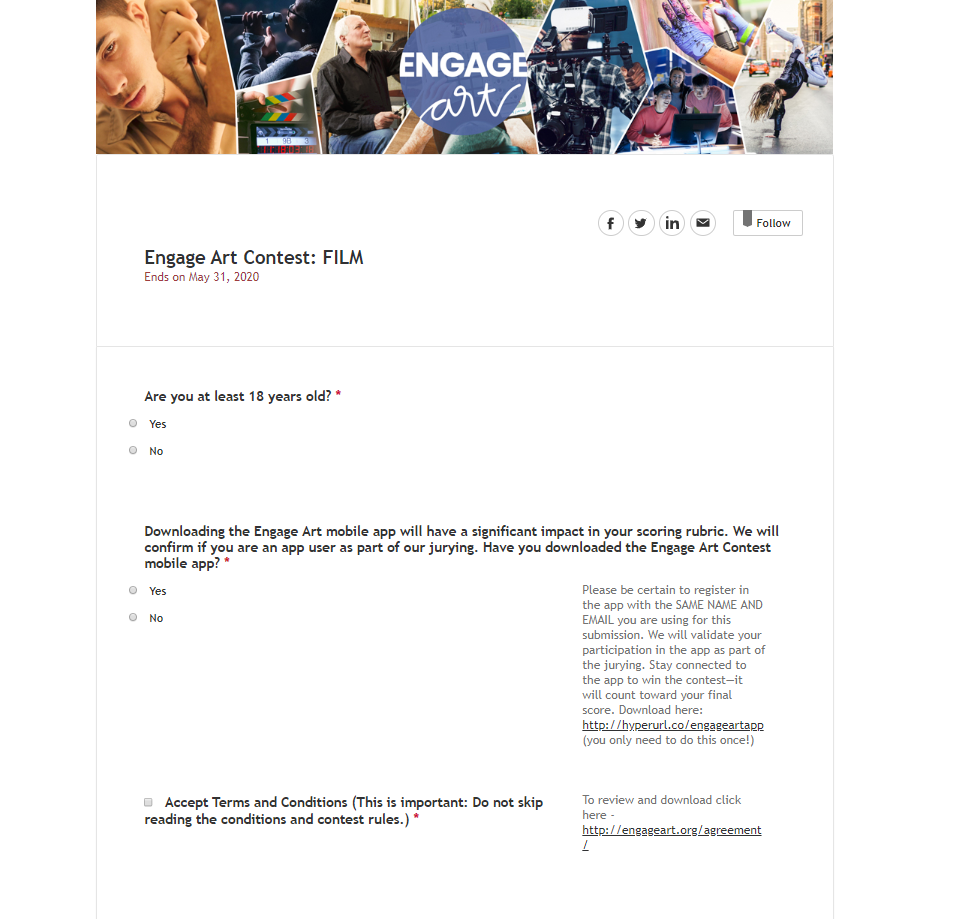Who doesn’t love to win?
Or, at least, the chance to win.
Games of both skill and chance have been a hallmark of fun and engaging brands for years. From AT&T’s Film Contest to local restaurants that give away a free meal to anyone who likes and shares a photo, brands can use a bit of luck and competition to drum up big brand awareness.
With social media’s rise over the last decade, it’s become even easier for big brands to rally their most devoted fans and make a major splash, from increasing brand awareness to collecting user-generated content.
Add to that the allure of going viral if your contest gets enough traction, and it’s clear why contest marketing can be a truly irresistible opportunity for brands both big and small.
But, before you break out the big wheel and start spinning, there are some things you should consider to save yourself a lot of headache later.
Specifically: Your contest rules.
Now, rules can seem like a buzzkill. Who wants to spend their time sorting through legalese when you could be promoting all of the cool prizes?
But ignoring this fundamental piece of the puzzle now could hurt you in a big way later.
Games of chance are great—except when the prize is a big lawsuit or fine.
Here’s what you need to know about running contests with rules that help you maximize the impact of your promotion while staying clear of any legal trouble that could crop up. And it’s all in plain language.
The many benefits of running online contests
Running an online contest can be a major boon for your brand.
Contests are especially beneficial when they’re well-architected to include the powerful reach and amplification of social media, influencers, and your brand’s more ardent supporters. With what is ostensibly a small investment in contest management software and some kind of prize, you could potentially reach millions—even tens of millions—of people without much additional cost.
Your goal is to create a feedback loop where contest participants are also encouraged to promote the contest itself, driving more participants and more promotion.

This is called a viral loop.
There are two main ways that brands accomplish it:
- Use social media to have participants share their submissions publicly, raising awareness for the promotion
- Offer a public voting process, which encourages participants to ask their friends and followers to vote for their work, driving new people to the contest

In 2018, Nike sponsored a Community Design Challenge that involved soliciting designs from local artists and selecting 5 winners whose work was showcased as one of the bike design’s used across Portland’s BIKETOWN program.
This cool promotion engaged the local community and built awareness for the bike-sharing program and its sponsors with a public voting option that allowed Portlanders to select the designs they wanted to see built.
Not only were local artists invited to submit their work for consideration, but those artists also asked their fans to visit the contest’s web page to view all of the submissions (and maybe vote for theirs).
While this promotion is a great example of what’s possible with smart contest marketing, it’s important to note that it was only possible because Nike took the time to secure the legal aspects.
Organizers needed to disclose the specifics of the submission and voting mechanisms, explain the criteria for selection, and secure usage rights for the submitted artwork from each individual artist.
Without any of these elements, the successful contest could have quickly turned into a disaster.
Let’s look at how to navigate the legal elements of running a successful contest and what your brand needs to know and understand so you can have the same success.
The rules of the game: Getting your contest rules right
While it may seem simple to brainstorm a fun hashtag and start asking your followers to tag you in their submissions, there’s a bit more to consider here.
For example, clothing and accessories company Cole Haan was issued a warning from the FTC in 2014 after it launched a promotion on Pinterest using the hashtag, #wanderingsoles. In this case, regulators argued that the brand had not adequately spelled out the terms of this promotion nor disclosed that it was a promotion, which could mislead consumers.
Even big brands are susceptible to this kind of misstep.
For smaller brands, it’s worth consulting a legal professional about the language that you need to avoid any trouble down the road.
This post won’t provide all of the specific legal language you need in a full terms and conditions, but it will give you a general framework of the most important aspects that go into creating air-tight and legally defensible terms for your promotion
Language matters—are you running a contest or a sweepstakes?
First of all, you need to define what kind of giveaway you’re actually planning. This has implications for the legal items in play.
Generally, there are two main types of giveaways that brands run:
- Sweepstakes
- Contests
The difference should be pretty clear, but a sweepstakes is a game of chance. Sweepstakes implies that anyone can enter (for free) and the winner is selected based on probability and not skill. Basically, everyone’s name gets tossed into a hat and then a winner is drawn.
On the flip side, a contest involves some level of skill or judgment. This could involve photography, singing, writing, or any other type of creative work or performance. In a contest, there’s no expectation of everyone having an equal opportunity to win because the work is generally judged by an individual, a panel, or the public.
What you really want to avoid is creating a lottery—which is a form of gambling and strictly controlled by state and federal regulations. Lotteries are a sweepstakes in which there’s “consideration,” or entrants must make a purchase or pay a fee in order to be entered to win.

What this means it that if your brand is hosting a sweepstakes, you need to make it free for anyone to enter to win. If entry is linked to a purchase (like the McDonald’s Monopoly game), then you need an alternative way for people to enter to win for free, like by writing a letter.
This is the classic “no purchase necessary” clause that’s standard for sweepstakes.
If your giveaway is a contest where entries will be judged based on specific criteria or general merit, there is a different set of considerations. For one, you can ask for an entry fee to cover the costs associated with judging (or generate a profit). Since entry is not based on chance, this would not constitute a lottery.
But, with contests, you need to also spell out the methods and criteria that will be used to judge and select the winners in advance.
Make sure that your contest is clearly defined and follows these guidelines to avoid trouble.
Giveaway terms and definitions: The basics
Whether you’re running a sweepstakes or a contest, you’ll need to make sure that you publicly post some important information about the promotion.
In particular, you need to disclose three key items:
- Terms
- Prizes
- Selection Methods
These three components make up the legal body of your promotion, so defining them clearly in legally-binding language is critical to success.
Define your contest or sweepstakes terms
The terms of your giveaway are like the main dish of the official legal parts.
Terms include the specifics about the promotion itself, including:
- Who can enter
- How to enter
- Alternative ways to enter
- Dates of the promotion
- Maximum number of entries
- Violations or abuses that lead to disqualification
In this piece, you want to clearly define all of the elements of participation in your giveaway and what an entrant or potential entrant may want to know. You also want to use specific, precise legal language that won’t leave your promotion up for interpretation by customers or lawyers.
Dictate the prizes
Tell ‘em what they’ll win, Johnny.
The rules of your contest should clearly state what prize will be awarded to the winner. Again, don’t leave anything up for interpretation here. Is it $500 cash or a $500 gift card with no cash value?
If the prize is a trip or an accolade, that should also be clearly spelled out in detail. You may also want to consider what happens if the winner is unable or unwilling to accept the stated prize—is there an alternative?
These details are important to decide in advance—and it can be challenging to think through the possible outcomes and scenarios ahead of time and write a flawless description of the prizes up for grabs.
This is what lawyers are for. Don’t hesitate to call one.
(Pro-tip: Don’t try to be cute and offer a “toy Yoda” that sounds like Toyota. You’ll get sued.)
Spell out the selection methods
Finally, you’ll want to explain how the winner of your giveaway will be chosen.
Spell out how (and perhaps by whom) the winning determination will be made, and on what criteria they’ll base their decision.
Remember, if they’ll be drawn at random, then you’re hosting a sweepstakes. But if they’re being selected by some kind of evaluation process, that makes it a contest.
Sweepstakes terms are pretty straightforward. You can simply explain that the winner will be chosen at random from all entries.
If you’re hosting a contest, then you want to explain to the best of your ability how the work will be judged. This could include a specific criteria or framework for evaluation, or it could use broad legal language that indicates that the selection is based on personal, subjective evaluation and that there is no defined framework.
Lastly, you’ll probably want to make it clear if the winning selection is final and cannot be reconsidered.
UGC contest rules: Rights and usage
If you’re running a contest or sweepstakes that involves people submitting work or content that they own the rights to, you have some extra rules you’ll want to be aware of.
This includes anything from photos entered into a contest with a hashtag or original work created for a contest that’s submitted directly through a contest webpage.
In either case, your company must have a legal framework in place before using this content in any kind of promotional way. So, if you want to collect photos entries from your customers and use them in a later ad campaign, you need to collect usage rights from each individual person who submits a photo for your campaign.
This can be tricky, of course.
You can make a blanket statement in your contest rules about assigning rights, but legal cases have turned this into a gray area.
Anheuser-Bush, for example, was recently sued by a customer whose photo was ostensibly submitted through a hashtag campaign and later used in an advertisement.
But they’re certainly not the only company to find themselves in this limbo.
These social media campaigns can feel like fun and games until you consider the potential legal pitfalls that await brands that aren’t savvy about securing rights in advance.

One sure-fire way to keep your brand out of the spotlight (in the bad way) is to use a contest management platform where all users submit their work directly (rather than via a hashtag) through a submission portal. In this scenario, you can also have each person affirmatively agree to the terms of your promotion.
That way, there’s no ambiguity.
Anyone who has submitted photos or other works through your contest platform has given you rights to use that work as dictated by your terms.
Then, you don’t have to scramble later to secure rights or ensure that everyone who participated understood and agreed to the terms of the promotion.
And, most importantly, you can avoid a lawsuit popping up when you least expect it.
Don’t gamble your brand’s success on the fine print. Figure out what you need to know before you launch your contest to make sure that it’s all smiles and cheers rather than lawsuits and lawyers.
Don’t take a chance with your brand’s contest marketing
Submittable’s contest management platform makes it simple and efficient to run a contest and get the rules, details, and legal bits just right.
Best of all, you can accept all kinds of submissions from music to movies, poetry to business plans, and beyond. Use our collaborative review software to select the best submissions yourselves. Or, open your contest to public voting to choose the winner.
Submittable is the industry’s leading contest management platform used by companies like Nike and AT&T to run promotional contests that make waves without creating a headache.
